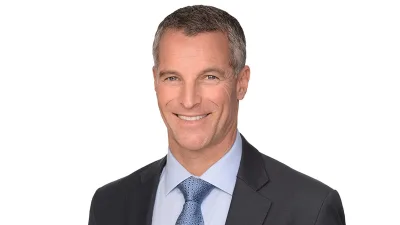India rolls out red carpet, cuts red tape


Investors should look towards India as China moves from production to consumption, the population ages and Beijing’s military expansion unnerves its neighbours, Indy Singh writes.
India is forecast to lead as the world's fastest growing economy — 7.5 per cent in real terms for both 2015 and 2016 — and projected to overtake China's growth rate.
More than half of India's population is under 25 years of age and more than 65 per cent are under 35. By 2020, the forecast is that the average age of an Indian will be 29 years, compared to 37 for China and 40 for Australia.
Into this mix, add these characteristics of India: it is democratic and based on the rule of law in a pluralistic culture in contrast to China's one-party, command-driven and relatively homogeneous society.
The final ingredient in this ‘India Rising' mix is Prime Minister Narendra Modi, the tea stall boy who rose to become premier of the state of Gujarat, took it to the highest GDP in India and who has now promised overseas investors a red carpet instead of red tape.
In Modi's first year as PM, he visited 18 countries, including Australia — the first such visit by an Indian prime minister in 30 years. He highlighted the countries' shared histories of democracy and sport, and collaboration rather than territorial influence.
Huge challenges ahead
However, behind the glad-handing and political rhetoric, Modi faces huge challenges — the main being for India to reach double-digit economic growth sustainably.
Building physical infrastructure is essential to boost productivity and job creation, contain inflation, reduce transport bottlenecks and make India globally competitive.
While legislative reforms may take time, Modi's government has already begun to clear the foreign investment bureaucratic log-jam and this has propelled business sentiment and new investment initiatives.
Fiscal consolidation is on the agenda and the focus is on cutting wasteful expenditure (particularly subsidies), broad-basing the tax revenue net and moving from a mind-set of hand-outs and outlays, to results and outcomes.
Market rises on Modi-Rajan wave
Global investors have maintained their faith in India with more than US$90 billion invested there over the past five years, even in a non-performing economy.
However, even while the Indian share market is touching new highs, Indians have preferred bank deposits and gold, which has maintained its value during a long history of economic mismanagement and resultant currency weakness.
Modi and Raghuram Rajan, the new Reserve Bank Governor who engineered a halt to the Indian rupee's downward slide early in 2014, are up to the task of encouraging foreign and domestic investment and reversing currency weakness.
Whether an Australia-India Comprehensive Economic Cooperation Agreement is signed or not, Australians could benefit by investing in the India growth story, which has decades to play out and is starting from a low base.
Indeed, the currency has already firmed and inflation is stabilising.
Much of the new investment in the share market has come from overseas. Clearly, the aim is to share in corporate profit growth that is expected to see earnings growth of around 16 per cent in 2015 and possibly higher next year.
This is reflected in the share market, which has risen 21 per cent a year (BSE Sensex) over the last three years (to the end of May).
Domestic sector to grow
Most of that growth has come from sectors such as consumables, IT and pharmaceuticals, whereas sectors that depend on the domestic economy have lagged. This should change with a revival in the investment cycle.
With the rupee at its current low point, the manufacturing sector is increasingly competitive and could benefit from a sizeable opportunity in exports.
Modi has mentioned that agriculture (which has been a drag on the economy), manufacturing, and services (tourism could see a quantum leap) are the three pillars of the economy and would be paid equal attention.
So, expect domestic savings to be channelled into productive financial assets. In addition, the Japanese Government has agreed to fund, as a partner and technology supplier, an industrial corridor of more than 1000 kilometres from New Delhi south to Mumbai.
Buy ‘Made in India'
Modi wants the world to buy ‘Made in India' rather than ‘Made in China'.
On this outcome, Indians, who only hold four per cent of their assets in listed shares, could find the share market to be a more suitable investment alternative.
Valuations are reasonable and even a small change in attitudes could result in a huge upward swing over coming years to dwarf recent rises.
Australians can benefit
Whether an Australia-India Comprehensive Economic Cooperation Agreement is signed or not, Australians could benefit by investing in the India growth story, which has decades to play out and is starting from a low base.
Local knowledge and connections are crucial for success in a nation of 22 official languages.
Tremendous opportunities exist in stock-picking and the benefits are there for Australian investors.
Australian investors will need to have a long-term horizon and preferably invest in a multi-manager style fund blended by using local fund managers who focus on specific components of the market to capture a wider range of opportunities and to diversify risk.
As one Indian fund manager said, "happy days are coming again".
Indy Singh is the founding chief executive officer of Fiducian Group Ltd.
Recommended for you
When entering paid employment, it’s not long before we are told that we’ll need to lodge a tax return but there are times when a person will be excepted.
Anna Mirzoyan examines how grandfathering affects income support payments and how factors such as paying for aged care can impact them.
There are specific requirements that only apply to trustees of self-managed superannuation funds, writes Tim Howard, including the allocation in their investment strategy.
Investments bonds offer a number of flexible, tax-advantaged benefits, writes Emma Sakellaris, but these are often overlooked as old fashioned when it comes to portfolio allocations.











